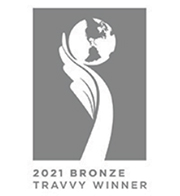InsideJapan Tours in the travel media
Here we've gathered a wide range of articles from the travel media featuring Japan and InsideJapan Tours.
-
11/02/2019
Traveller Magazine - Brian Johnston
Onsens in Japan for tourists: The rules of visiting an onsen
-
02/02/2019
The Times Magazine - Gemma Bowes
Machu Picchu? Been there, done that. The Travel Expert's new bucket list.
-
31/01/2019
Flower Arranger Magazine - Caroline Hendrie
Fabulous flower get-aways - Discover ikebana in Japan
-
02/01/2019
Evening Standard Online - Alix O'Neill
Wish you were here? The hottest holiday destinations of 2019
-
29/12/2018
The Daily Telegraph - Danielle Demetriou
Osaka has long been famed as a haven for food lovers
-
26/12/2018
Good Housekeeping Online - David Wickers
What's hot in 2019: Top travel destinations
-
01/12/2018
National Geographic Traveller - Pol O'Conghaile
Changing faces, shifting landscapes
-
29/10/2018
The Telegraph - Chris Leadbeater
Why you must go to Japan next year - and the best cities to visit
-
26/10/2018
i News - Hugh Godwin
New Zealand vs. Australia: Tokyo readies itself for Rugby World Cup 2019 as Bledisloe Cup takes centre stage
-
01/10/2018
The Independent - Mary Novakovich
Seven of the best holiday deals for October
-
27/09/2018
Evening Standard - Dipal Acharya
Rise & Shine - Our guide to Kyoto, Japan's ancient capital
-
03/09/2018
The Telegraph - Lizzie Pook
10 of the world's most spectacular dance holidays
-
31/08/2018
Robb Report - Phoebe Neuman
You can now spend the night in one of Kyoto's most historic temples
-
23/08/2018
Traveller - Keith Austin
Bathhouses in Japan: The most fun you can have naked
-
18/08/2018
The Times - Julia Brookes
How to make the most of a trip to see the Rugby World Cup in Japan
-
16/08/2018
The Telegraph - Paul Bloomfield
10 of the world's most magical autumn escapes
-
27/07/2018
Traveller - Keith Austin
MariCAR Osaka: Where you can go Mario Kart-ing in Japan
-
27/07/2018
The Telegraph - James Foxall
Supercar spectacular: tour Tokyo by night in a Ferrari, Lamborghini or McLaren
-
05/05/2018
Daily Mail - Lisa Snowdon
A blossoming love for Japan: TV Star Lisa Snowdon finds her idea of heaven in the Land of the Rising Sun.
-
25/04/2018
The Express - Margaret Hussey
Japan's unique mix of tradition and innovation makes for an inspiring trip
-
10/04/2018
Dinky Guide - Karen Bowerman
Cultural Kanazawa in Japan, famed for gold leaf and geisha, is ready to take on Tokyo.
-
07/04/2018
The Times - Ben Clatworthy
The best holidays, cruises and websites for disabled travellers
-
24/02/2018
Sydney Morning Herald/Sunday Herald - Katrina Lobley
Avoid the single supplement: Ten of the best trips for solo travellers
-
30/01/2018
The Telegraph - Sarah Baxter
25 invigorating fitness holidays to transform your 2018
-
27/01/2018
The Mail - Jane Horrocks
Land of the climbing son (... and disappearing daughter!): Jane Horrocks enjoys the trip of a lifetime in Japan - until she loses her children on misty Mount Fuji.
-
04/11/2017
The Times - Annabelle Thorpe
Winter in Japan - Sushi, skiing, snow monkeys and bullet trains.
-
04/11/2017
The Guardian - Michael Booth
We're going on a bear hunt...in Hokkaido, Japan.
-
10/09/2017
The Sunday Times - David Baddiel
David Baddiel takes his family to Japan - and unleashes his inner Ninja.
-
19/08/2017
The Sun - Emily Fairbairn
Now for Sumo-Thing Completely Different: Japan is beautiful, unique and more than a little bit weird
-
03/08/2017
The Independent - Simon Parker
Drinking matcha in Japan: why the roots of this Instagram favourite run deeper than you think.
-
07/07/2017
The Telegraph Sarah Baxter
Splendid isolation: 50 amazing holidays to escape the modern world
-
23/06/2017
Mail Online Ted Thornhill
Boring on the outside zen-like luxury on the inside: The Kyoto hotel that definitely should not be judged on first impressions.
-
22/06/2017
The Wall Street Journal Alastair Gale and River Davis
Japan Wants Tourists, Except Those in Mario Costumes Driving Go-Karts
-
01/06/2017
Get Lost Magazine
Roving Epicures Gastronomic Adventure: Honshu Island Japan
-
11/05/2017
The Telegraph - Sarah Baxter
The 50 greatest honeymoons on Earth (take note, Pippa)
-
30/04/2017
Mail Online - Ted Thornhill
Inside Jessica Alba's favourite Japanese hotel: The jaw-dropping riverside Kyoto inn' guaranteed to make a splash (and not just because you arrive via an enchanting boat ride)
-
09/03/2017
The Independent - Stephen Phelan
The Japanese fishing town that's reinvented itself as a hipster hub since the tsunami
-
07/03/2017
The Telegraph Danielle Demetriou
Everything you need to know about seeing cherry blossom in Japan
-
06/03/2017
The Telegraph Benjamin Secher
The greatest family-friendly destination you'd never even thought of
-
17/02/2017
The Question Beta Alessia Horwich
Is it easy to navigate the Tokyo subway system?
-
09/02/2017
The Week Portfolio
Learning from the locals: Cookery holidays with extra bite
-
05/10/2016
Destinations of the World News Richard Mellor
Height of Tradition: Why Tokyo is a must for luxury travellers
-
27/06/2016
The Telegraph Monisha Rajesh
The world's 10 best train journeys by the woman who's done them all
-
08/06/2016
The Telegraph Jason Atherton
10 great gourmet adventures in Asia, chosen by Jason Atherton
-
08/05/2016
Traveller Online Rob McFarland
Akihabara: Tokyo's mad world of gaming, manga and maids
-
26/02/2016
Independent Chris Leadbeater
Spring Breaks from Paris to Padstow: Find a Sense of Renewal
-
22/02/2016
Independent Michael Booth
Shikoku, one of Japan's smallest and most serene islands: an insider's secret in the inland sea
-
04/02/2016
The Telegraph - Adrian Bridge
Rail holidays: 10 train journeys you must take in 2016
-
06/01/2016
Independent - Nick Boulos
Book a bargain break by planning around good exchange rates and low-cost flight routes
-
26/12/2015
Telegraph Online - Trisha Andres
The 10 Best water-based activity holidays for 2016
-
12/10/2015
The Independent - Rebecca Milner
Japan on a budget: Tokyo, Kyoto, and the bullet train
-
12/10/2015
The Express - Anne Gorringe
Ten great holiday inspirations for 2016: How about hot springs, wildlife and great wines
-
25/07/2015
Financial Times - Caroline Daniels
Beyond the bullet train: the heart of rural Japan
-
22/05/2015
Travel Bulletin - Loretta White
Far East News: InsideJapan's Luxury Japan group tour
-
27/04/2015
The Independent - Mark Jones
Tour guides should cut to the chase and make it snappy
-
16/04/2015
High 50 Travel - Cathy Winston
The best escorted tours and singles' holidays you won't hate: explore Asia, Cuba and beyond
-
07/04/2015
Mail On Sunday - Tim Bentick
A far from everyday story of Tokyo folk: Archers star Tim Bentick jets to the crowded, courteous world of Japan... where absolutely everything is difficult
-
13/03/2015
The Independent - Sybil Kapoor
Kanazawa, Japan: The bullet train is opening up the country's Edo heritage
-
10/03/2015
The Guardian - Sybil Kapoor
The best restaurants in Tokyo and Kyoto - chosen by Japan's top chefs
-
23/01/2015
The Telegraph - Rachel Khoo
Rachel Khoo on the rise of ramen - and why you must slurp
-
03/01/2015
The Guardian's top 40 travel destinations
Holiday hotspots: where to go in 2015
-
16/11/2014
Daily Mail - Hillary Macaskill
Captivated by Kanazawa - a hidden gem of a destination
-
13/09/2014
The Independent - Graeme Green
Japan's Yaeyama Pearls Pearls of the Pacific
-
27/03/2014
The Telegraph - Adrian Bridge
Japanese Cherry Blossom: Festival and Viewing Guide
-
07/02/2014
Sunday Telegraph - Edmund De Waal
Japan By Train: Spirited Away in Tokyo and Kyoto
-
16/01/2014
Conde Nast Traveller - Laura Griffith Jones
Four Asian Dive Spots You didn't Know About
-
19/10/2012
The Guardian - Abigail Flanagan
James Bond on Location - 007 holiday destinations
-
29/09/2012
The Guardian - Charlie Brooker
Raw Passion in Japan: Charlie Brookers home cookery lesson
-
01/02/2012
The Guardian - Charlie Brooker
Charlie Brooker in Tokyo: In Japan Geeks are comforatably mainstream
 Australia
Australia
 USA
USA
 Inside Japan UK office
Inside Japan UK office Inside Japan US office
Inside Japan US office Inside Japan Australia office
Inside Japan Australia office Inside Japan - Japan office
Inside Japan - Japan office

























